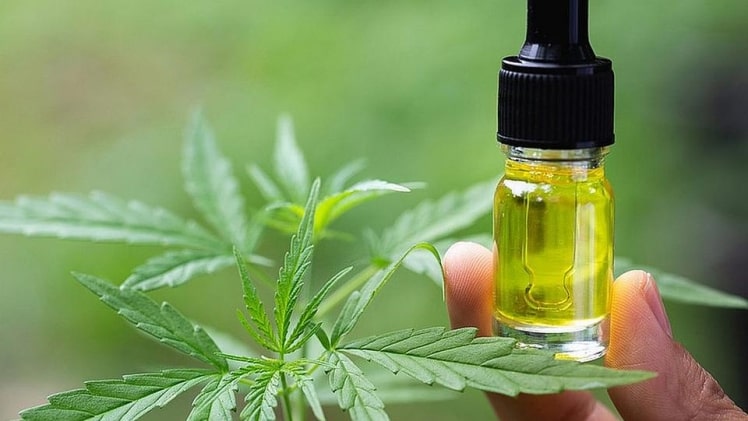You may be wondering whether THCV is legal for your retail CBD store. This article will explain why it is not. As a CBD isolate, THCV is not regulated by the DEA and is not approved for any therapeutic or medical use. Before you sell THCV, it’s essential to determine its purity. In addition, reputable wholesalers can provide a COA that details the THC content and the absence of contaminants. Many states require testing for specific contaminants, so you can easily spot a counterfeit product from a reputable wholesaler whose are capable to THCV isolate for sale.
THCV is a CBD isolate:
CBD isolate is a concentrated form of CBD without any other cannabinoids or terpenes. This is important because full-spectrum CBD products have the entourage effect, a beneficial combination of cannabinoids. Isolate products lack this effect and are thus not as effective as full-spectrum CBD. For that reason, it’s essential to understand the benefits of CBD isolate and how it can help your customers.
The FDA does not allow any medical claims on the websites of CBD retailers or suppliers. The FDA does not yet approve CBD, and it is not yet widely accepted. However, if you’re planning to sell CBD products in your retail store, you should be aware of the state’s legality requirements and adhere to them. For example, you should only sell cannabis grown using industrial hemp, which is legal nationwide. In addition, it’s better to choose a full-spectrum CBD product rather than an isolate since it has more properties. Besides, it will promote the entourage effect.
It is not allowed to be sold at a retail CBD store:
It’s essential to check the purity of your CBD products before purchasing them. A product must be lab-tested to ensure free from contaminants and THCV isolate, or THC. While many states don’t require lab testing, some do. If your manufacturer can’t provide this information, that’s a red flag. Product quality is critical for customer satisfaction and brand reputation. A recent survey of CBD users revealed that a product’s ability to create the desired effect is the primary reason for buying it from State Of Mind Labs.
Isolate is the purest form of CBD available on the market. It has no additives, including wax and chlorophyll. Isolate is colorless and can be mixed with a variety of foods, making it a popular option for many customers looking for CBD products without the high of THCV. It’s a highly refined, highly concentrated version of the compound used in hemp products.
The DEA does not regulate it:
THCV is a cannabinoid present in marijuana and hemp. The plant has only a few varieties of this cannabinoid. It is also costly, making its isolation an attractive option for the cannabis industry. Some people have successfully isolated THCV from these plants and added it to other manufactured products, such as CBD isolates. This approach opens the door to greater yield, supply chain accessibility, and traditional cannabis products.
The DEA has issued an interim rule that exempts certain industrial products, processed plant materials, animal feed mixtures, and parts of the cannabis plant from its control. As long as they are not THC-free, these products do not need to be regulated, and the new rule allows manufacturers 120 days to dispose of existing inventories. THCV isolate is also not regulated by the DEA.
It is not marketed for therapeutic or medical uses:
THCV is a synthetic form of cannabis marketed for its recreational and therapeutic effects. THCV has a similar structure to THC, except for the pentyl group. Both compounds bind to CB1 receptors, though the latter does not. In addition, THCV has a higher boiling point than THC, requiring a higher temperature in a vaporizer.
THCV is an essential cannabinoid, but unlike THC, it is not produced in large amounts. It is found in low concentrations in plants and is therefore consumed as an extract. The most common form of THCV extract is oil. However, there are several concerns regarding its safety and effectiveness in medical settings. Nevertheless, this substance holds promise for the treatment of bone-degenerative diseases. To learn more, you can previews our mentioned links https://www.prweb.com/releases/2022/4/prweb18633942.htm
It is not a dietary supplement:
THCV is the most-wanted cannabinoid in the world. It is sometimes referred to as the “sports car of cannabinoids,” “skinny pot,” or “diet weed.” More than a decade ago, GW Pharmaceuticals spearheaded a study on THCV to determine its therapeutic potential for various metabolic issues, including high blood pressure, low or high cholesterol, and increased abdominal fat.
The effect of THCV is different for different people, and scientists are still researching its effects. Cannabis marketers are still trying to find the most effective way to pitch this new compound. While it may not entirely erase the urge to snack, it might prevent some people from reaching the level of psychoactivity that makes them want to eat. If you’re a Type A or B person, this might be your product.

